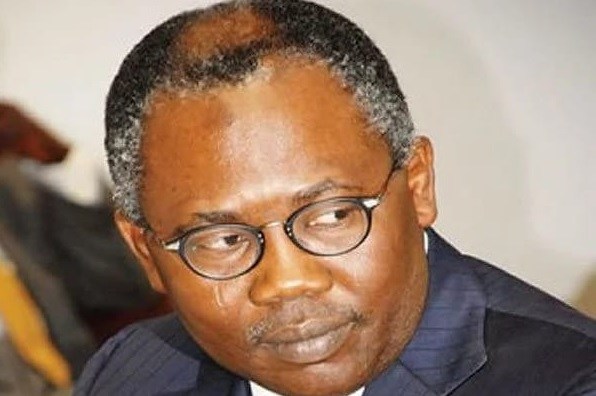
The immediate past attorney-general of the federation, Mohammed Adoke, who is facing corruption charges, has asked a Federal High Court in Abuja to declare his prosecution by the Economic and Financial Crimes Commission, EFCC, illegal.
In the suit asking the court to determine the constitutionality of a serving minister exercising executive power through a presidential directive, Mr. Adoke said his involvement in the Malabu Oil deal was limited to carrying out the directive of former president, Goodluck Jonathan.
Named as the sole defendant in the suit was his successor, Abubakar Malami.
Mr. Adoke is accused by the EFCC of aiding the transfer of money to his co-defendant, Dan Etete, himself a former petroleum minister and conspiring with him to commit money laundering offences in the infamous $1.1 billion Malabu Oil scam.
But in originating summons to his counter-suit, which was signed by 11 lawyers led by Kanu Agabi and two other senior lawyers, Mr. Adoke asked the court to determine whether by virtue of sections 5(1), 147(1), 148(1) and 150(1) of the 1999 Constitution a serving minister of the country can perform the “executive power of federation vested on the president as directed by the president.”
Section 5(1) of the Constitution deals with the executive power of the President and how such powers can be exercise or delegated.
Section 147(1) and 148(1) outlines the duties and responsibilities of ministers and how those responsibilities are exercised in accordance with the wishes of the president while Section 150 (1) specifically deals with the responsibilities of the AGF.
Mr. Adoke prayed the court to declare that his involvement in the negotiation between the Nigerian government and Malabu Oil and gas Limited, Shell, Nigeria national Petroleum Corporation (NNPC) and Agip in the matter of OPL 245 was in “furtherance of the lawful directive/approval of the president in the exercise of his powers.”
The former AGF also asked the court to declare that any correspondence he had with J.P Morgan (the back which transferred the money to Mr. Etete) and any other entity and ancillary actions and processes taken in respect to the Malabu oil deal was in obedience to the lawful directive of the president in the exercise of his executive power.
He further asked the court to declare that his prosecution by the EFCC in respect of Malabu deal on the account of carrying out the president’s directive was illegal, null and void and in breach of Section 5 (1) of the Constitution.
Lastly, he asked the court to declare that he cannot be held personally liable for carrying out lawful directive/approval of the president while he served as a minister.
In the affidavit filed in support of the originating summons, Mr. Adoke traced the evolution of the deal from 2006 until 2010 when Mr. Jonathan approved the transfer of the oil block to Mr. Etete maintaining that his role in the deal was shaped by former president’s directives.
“That at all time material the plaintiff carried out the Presidential directive diligently, faithfully, impartially and in good faith and without any personal gain to himself nor to any other person except as was agreed to by the known parties to the parties.
“The plaintiff verily believes that he did not exceed the directives/ approval given to him by the President and did nothing wrong to warrant his prosecution on account of the implementation of the Settlement Agreement,” the affidavit stated.
END

Be the first to comment